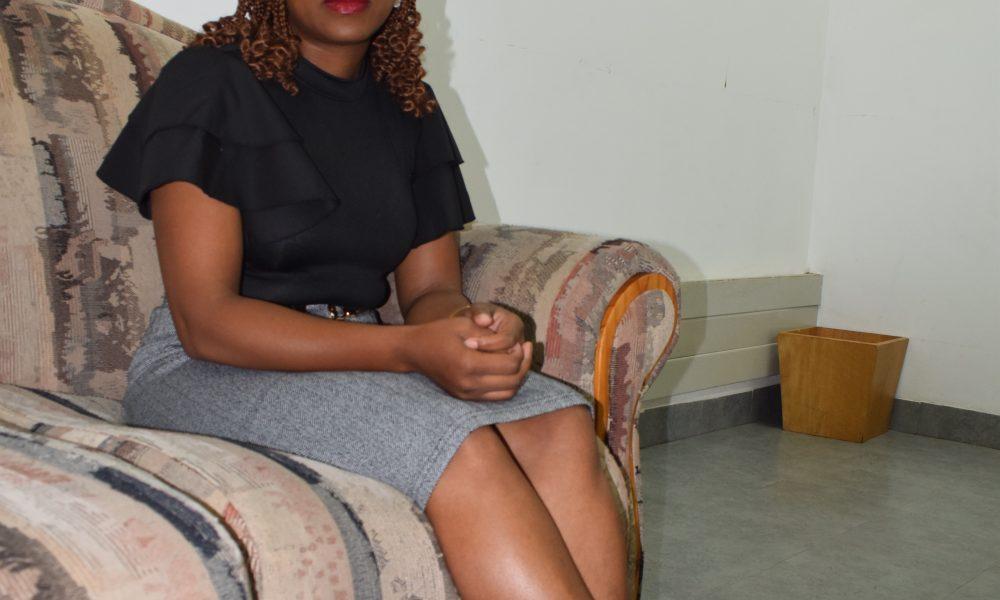Africa-Press – Lesotho. Mamokete Ntšekhe, always elegantly dressed, nowadays delivers lively debates in Parliament. But it has not always been like that. Ntšekhe knows what it means to be poor.
“I used to have a crust of dirt on my body,” Ntšekhe, the first woman to be elected into parliament in the Mphosong constituency, says.
Growing up in the hard-to-reach area of Bobete in Thaba-Tseka, Ntšekhe’s daily struggle was how she would survive the next day. “Life was hard. I know the tough life of a Mosotho girl in the rural areas of the country.
I know how to collect wood and draw water,” she says. But she fought against all odds, underlining her resilience as a politician who has refused to be defined by her background.
Her fortunes now have dramatically changed. Today as an MP she is fighting for the betterment of the people of her Mphosong constituency. A mother and a nurse, Ntšekhe says she has experienced debilitating stories from women suffering from abuse.
“I want to be the voice of the voiceless in Parliament,” Ntšekhe says.
“There is a lot of injustice against women and girls in almost every corner of the country.
” During her days as a nurse, Ntšekhe realised that these injustices against women need to be addressed. Men, she says, are the biggest perpetrators.
“Some women end up hiding their health booklets so that their husbands do not see that they are using family planning methods to prevent unplanned pregnancies,” she says.
“Being an MP accords me an opportunity to amplify my efforts to protect women and other vulnerable groups. My experience as a nurse has shown me that many women are not even aware that they are being abused,” she says.
The job, she says, opened her eyes and pushed her to organise outreach programmes for men living in rural areas because “they seem to lack understanding on some family planning issues”.
Calm and down to earth, Ntšekhe is not one of those Basotho career politicians. “I have never put on a T-shirt associated with any political party,” she says.
After successfully completing her studies at Khethisa High School, she enrolled with the National University of Lesotho (NUL) to pursue a BSc degree in Midwifery in 2005.
When the Prime Minister Sam Matekane, a super-rich businessman, launched a political party, the Revolution for Prosperity (RFP), Ntšekhe decided to join the fray.
“I felt an urge to join him to drive the vision, so I decided to contest the elections,” Ntšekhe says.
“My work is no longer limited to advocacy. I now also make laws and policies in Parliament to protect vulnerable groups such as women.
Awareness is also critical for women to know their rights. Women should know that there are many opportunities out there for them,” Ntšekhe says. Another cause for her is to ensure that women take part in mainstream economic activities.
To achieve this, she says, women should get improved access to information. The plight of children failing to attend school because of lack of school fees is another of her concerns.
“It should be clear to parents that it is their responsibility to take their children to school in order to pave their future through education.
It is heart-rending to see children looking after animals instead of going to schools,” she says. She says there are also cases of child-headed families that affect some children’s ability to go to school.
“Regrettably, children are the ones suffering and their education is compromised,” laments Ntšekhe.
“We have tried as a family to assist some children go to school but there are still many outside schools. We have limited resources to take a larger number,” says Ntšekhe, a businesswoman with interests in mining, technology and courier services.
She says a pressing issue that needs urgent attention is the scourge of child marriages that are common in most rural areas in the country. “We have to make noise about this issue because it has a devastating impact on the lives of the girl child.
Girls have to go to school so that they can get high paying jobs in future,” she says, adding that parents should not look at the brideprice at the expense of their children’s future.
She alludes to her own success as an example of how education can change the fortunes of girls from poor backgrounds. For her high school studies, Ntšekhe moved from Mokhotlong to Leribe’s Khethisa in 2003.
“That is where I met my husband,” Ntšekhe recalls, adding that the father of her children is her soul mate and crediting him with supporting her political and business interests.
After completing her studies at the NUL, she worked at Queen ’Mamohato Memorial Hospital but later left for South Africa to join her husband, who was already there.
“Things were rough there. I had no job,” Ntšekhe says, attributing the situation to South Africa’s long procedure for one to be admitted as a nurse.
Faced with the difficulty, the couple started an Information and Technology (IT) company. “As a nurse, I did not have the skills to run the company. I knew nothing about IT issues.
But I was effective as an administrator and overseer of the company,” says Ntšekhe, who helps the needy by doing sharecropping with them in their fields.
“With the scarce resources I have, I want to invest in rural development to change the economic landscape of my constituency,” says Ntšekhe, who holds a Masters in Nursing Intensive Care obtained from Wits University in South Africa in 2014.
In 2021, a few months before becoming an MP, Ntšekhe obtained a Certificate in Business Development and Entrepreneurship from UNISA. Ntšekhe is in the process of enrolling with the University of Cape Town to pursue a Master’s degree in Business Administration (MBA).
She describes the death of her mother in 2010 as the saddest moment of her life. “Three days before I graduated from the NUL, I lost my mother. What made matters worse for me is that she was sick. She just collapsed,” says, fighting back some tears.
“I was crowned the best student in nursing but regrettably, my mother was not there to witness the moment,” says Ntšekhe, adding that her ultimate goal is to establish a foundation to take care of orphans and vulnerable children.
For More News And Analysis About Lesotho Follow Africa-Press






